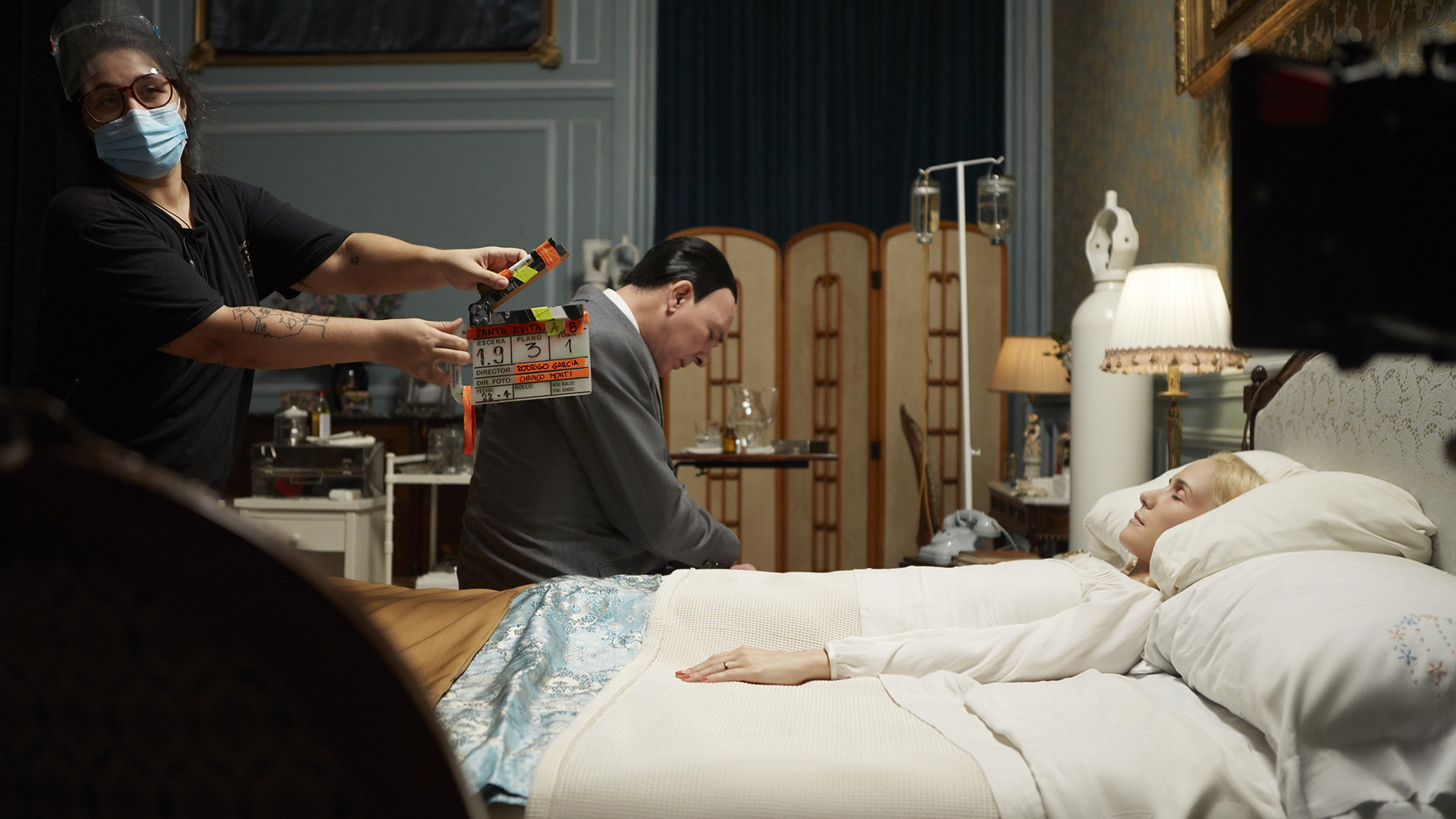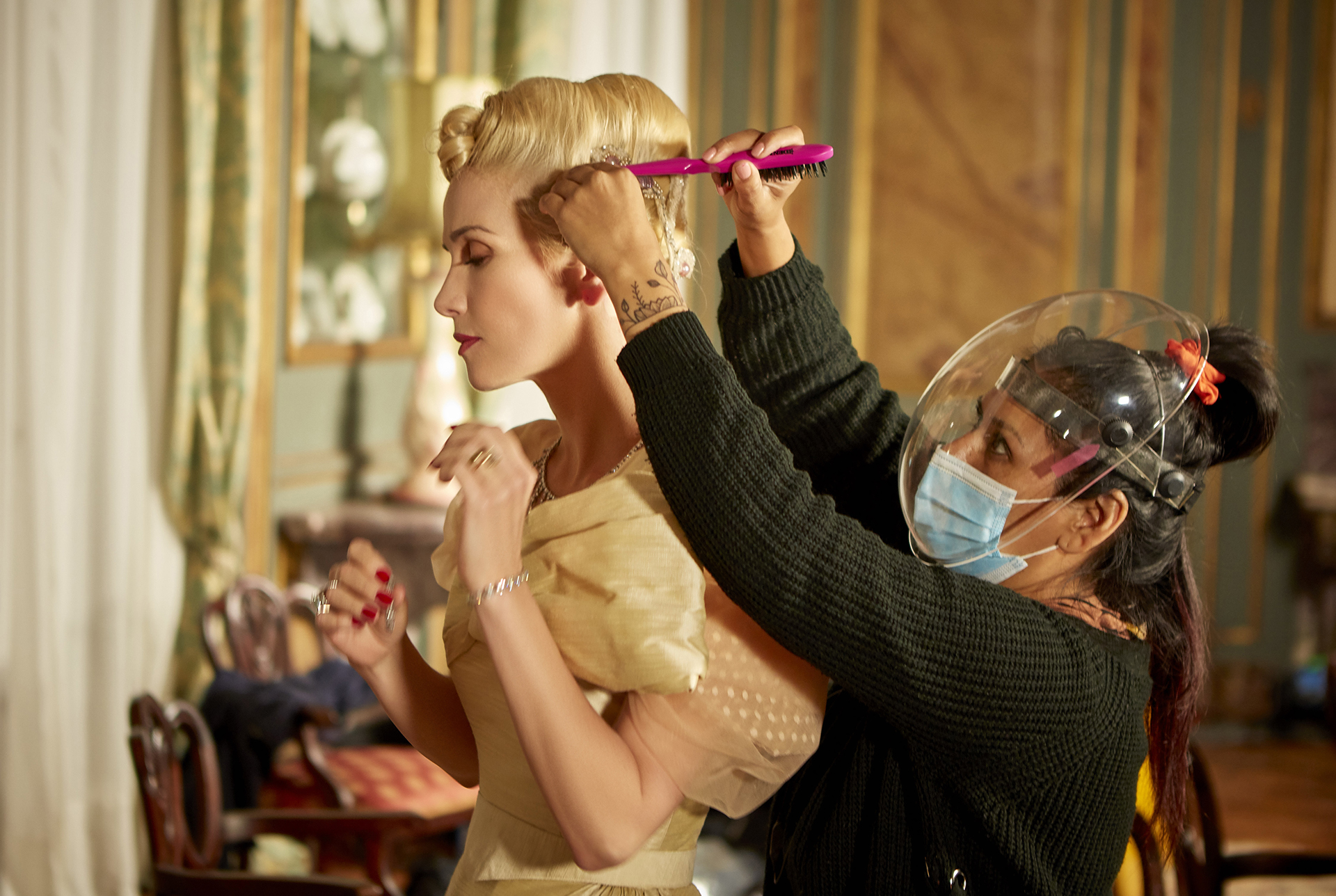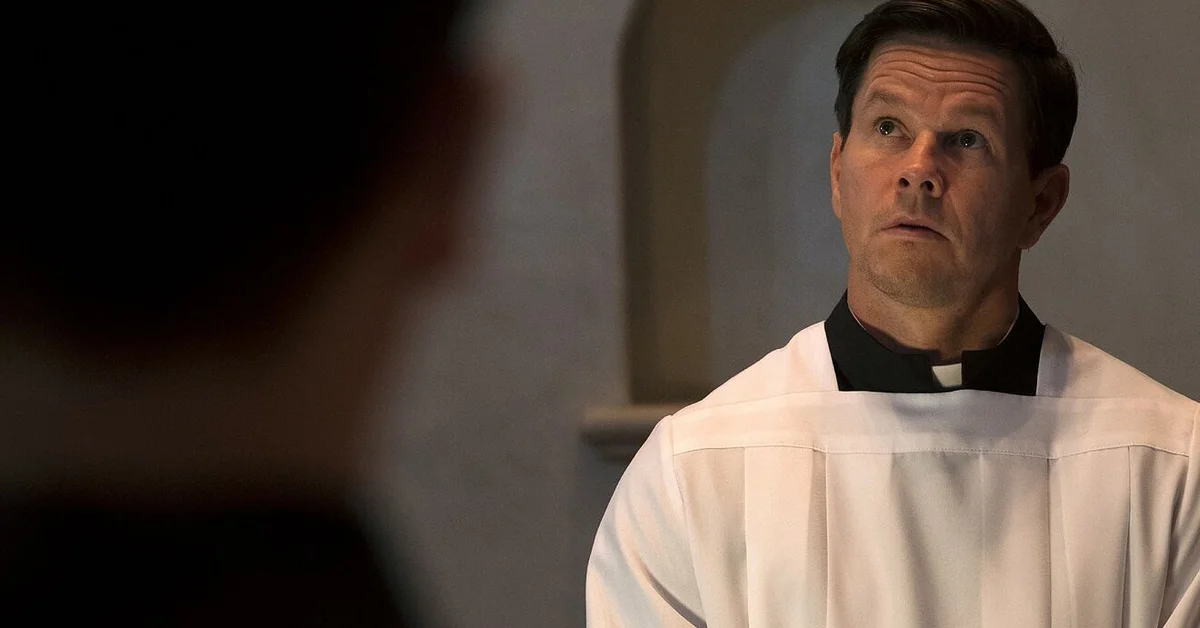Alejandro Maci, director of Santa Evita: “There is a black and rugged aspect of Argentine history that is bewitching”

Alexander Maci He has a long career as a director and screenwriter on television. He left his stamp on remembered fictions like boots, tumberos, lalola Y Laura and Zoewhich earned him a Platinum Konex, among other recognitions. But even with that journey, in his countenance one can see the anxiety typical of the preview of each premiere and the pride of knowing that you have a brilliant product in your hands.
Beside Rodrigo Garcia is one of the directorsand Saint Avoid, the seven-part miniseries based on the best-selling Thomas Eloy Martinez. A global blockbuster that delves into the darkest of Argentine history in recent decades and is a reflection of the recent world that hit the industry so hard: “We have worked very hard for this, sometimes in adverse times due to contagion. It was very complex to develop and articulate it with actors who have come from abroad in times when it was not possible to travel. We are very moved, excited and expectant”, says Maci in dialogue with Teleshow.
Saint Avoid opens today for Star+coinciding with the 70th anniversary of the death of the former first lady, and presents a luxury cast, led by Natalia Oreiro What Eva Peron, Dario Grandinetti What Juan Domingo Peron, Ernest Alterio like lieutenant colonel Carlos Moore Kenig, Francis Orella like the doctor Peter Ara Y Diego Velazquez like the journalist Mariano Vazquezin a kind of alter ego of Eloy Martínez.
Maci read the novel shortly after it was published, in 1995. And it remained in her library until she started working on this project more than five years ago. “Obviously, I read it a hundred times afterwards. The approach one has to a text when one is a mere occasional reader is different from when one begins to work on it and sees its compositional aspects and its narrative articulation”, explains the director.
As he speaks, he reviews the plot in his head, the one that delves into Evita’s life but above all into her death, and into the mutilation of her corpse, which suffered the worst humiliations until she could rest in peace. “The text is huge. It is a magnificent story. And it makes it more captivating knowing that a high percentage of that novel definitely happened”, reflects Alejandro.
How did you get to the project? Saint Avoid?
—They called me when Rodrigo García was already working on the adaptation of the books together with Marcela Guerty Y Pamela Rementeria. When I joined the project there was already a version of the book, so in addition to rereading the novel, I also read the scripts that the three of them had written.
—Was it already with Natalia as the protagonist?
-Not yet.
“How did you decide that she was Eva?”
—Natalia did an extraordinary audition that we saw with Rodrigo. She prepared a very thick, very talented, very interesting work on Eva, and we thought that from that she could build a character that comes and goes in time. A character of enormous complexity, with the infinite connotation that Eva Perón can have, and with the particularity that in this story she has a giant dramaturgical support. We saw that there was soul in her proposal, that there was a job to develop.
—I like this that there was a soul. I had the opportunity to talk to Natalia and she told me that some time ago she had already been offered to play Eva in another project and she said that she was not ready. And that now, doing this casting gave him confidence for the role. Sometimes we are surprised that actresses of her popularity accept a casting.
—Natalia has a very interesting idea of what work is and there is an idea that for me is completely wrong, which is to think of the audition as an exam. Hearing is not a test. In fact, in places like the United States, established actors audition because it has to do with a tonality of approach. No one is going to discuss a talent, another issue is being discussed, and sometimes it has to do with the concept of a project, not with a particular performer. Natalia sees it that way, and then takes it as a relaxed instance.
Natalia is amazing. And Ernesto is also wonderful as Colonel Moori Koenig.
—Ernesto is an extraordinary actor. I had not directed it, and I hope that life gives me the opportunity to continue working with such an extraordinary actor and such an enormous person who has given me artistic and personal pleasure.

—What was the most difficult thing you found on this shoot?
-On the one hand, the tonality of the story that has occupied us all a lot. That is to say, to find the tonal key of what this story requires, which has decidedly thriller aspects in its central aspect. It has melodramatic aspects with respect to backward constructive situations of bonds in the past. And on the other hand it has a journalistic investigation, that concept non-fiction where the investigative narrator journalist puts himself on stage looking for the subject of what he is trying to investigate. It was very complex and it was a huge learning for everyone. And to all this was added the challenge of the pandemic.
—What were the difficulties?
—There were no vaccines, so at first we worked through Zoom. Afterwards we got together terrified; then with chinstraps and masks, so we talked and didn’t listen to each other. It was very complex, there were infections. Later, Natalia and Darío were isolated due to close contact, so the plan of the protagonists had to be changed. It was a very big challenge for me too. Mercedes Alfonsin and the entire art team, because we worked in periods, so we couldn’t jump from one period to another because we didn’t have the city at our disposal. We work with five eras and each one must be built scenographicallyit’s not just going and putting the camera.
—What was the happiest moment during filming?
“There were many very happy moments. I remember shooting situations in which time flies, like the relationship scenes between Perón and Eva, for example. I will never forget Eva and Perón’s first meeting. On the other hand, there are aspects that have to do with what we are behind the camera. It is very exciting to achieve certain issues in certain contexts, because the difficulty only underlines the pleasure that it gives to face it. And that today we can talk about the finished miniseries is something that we all carry inside because many times we doubt if this was actually going to be possible.
—It is a very big responsibility to tell this story and talk about an emblematic woman like Eva.
—It is an enormous responsibility for what you have just said and also for making an adaptation of one of the greatest novels of Argentine literature.

—What do you want to happen this July 26, when your son comes into the world?
-I wish him well. I want people to be as interested in history as we are. There is a dark, rugged aspect of our own history that seems to me that, aside from what I have just said, it is magnetic, it is bewitching.. I hope that this is also bewitching for the public, because the story is global and is released everywhere, but it is also a story that is very strongly anchored in Argentina. And I think that It is also an interesting mirror, an interesting metaphor to rethink ourselves and see what we do, how we conduct ourselves, and I would tell you today, in these years, what we men are capable of doing with a woman when we want to appropriate her. What have we been capable of and congratulations in what things the world is changing.
:




